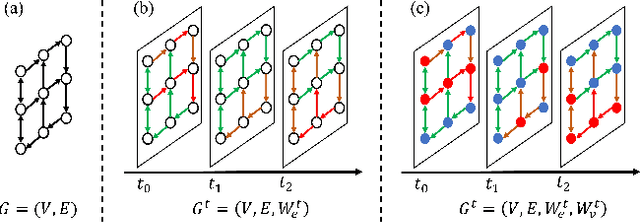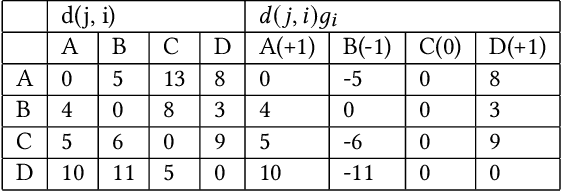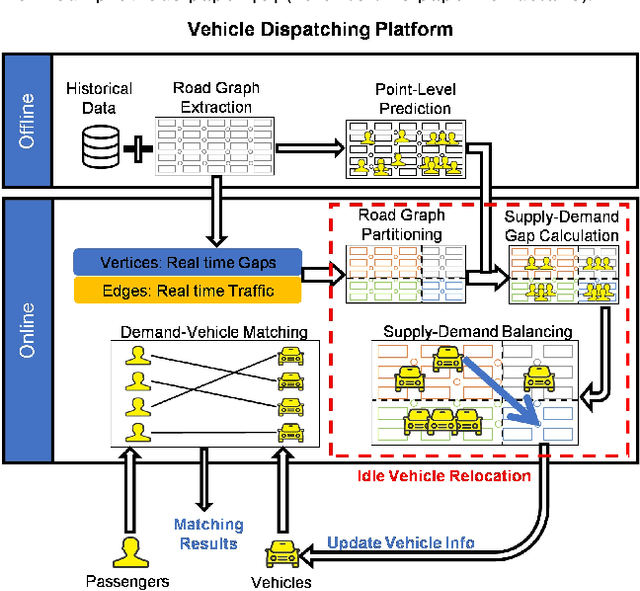Tarique Anwar
AttentionDep: Domain-Aware Attention for Explainable Depression Severity Assessment
Oct 01, 2025Abstract:In today's interconnected society, social media platforms provide a window into individuals' thoughts, emotions, and mental states. This paper explores the use of platforms like Facebook, X (formerly Twitter), and Reddit for depression severity detection. We propose AttentionDep, a domain-aware attention model that drives explainable depression severity estimation by fusing contextual and domain knowledge. Posts are encoded hierarchically using unigrams and bigrams, with attention mechanisms highlighting clinically relevant tokens. Domain knowledge from a curated mental health knowledge graph is incorporated through a cross-attention mechanism, enriching the contextual features. Finally, depression severity is predicted using an ordinal regression framework that respects the clinical-relevance and natural ordering of severity levels. Our experiments demonstrate that AttentionDep outperforms state-of-the-art baselines by over 5% in graded F1 score across datasets, while providing interpretable insights into its predictions. This work advances the development of trustworthy and transparent AI systems for mental health assessment from social media.
DepressionX: Knowledge Infused Residual Attention for Explainable Depression Severity Assessment
Jan 24, 2025



Abstract:In today's interconnected society, social media platforms have become an important part of our lives, where individuals virtually express their thoughts, emotions, and moods. These expressions offer valuable insights into their mental health. This paper explores the use of platforms like Facebook, $\mathbb{X}$ (formerly Twitter), and Reddit for mental health assessments. We propose a domain knowledge-infused residual attention model called DepressionX for explainable depression severity detection. Existing deep learning models on this problem have shown considerable performance, but they often lack transparency in their decision-making processes. In healthcare, where decisions are critical, the need for explainability is crucial. In our model, we address the critical gap by focusing on the explainability of depression severity detection while aiming for a high performance accuracy. In addition to being explainable, our model consistently outperforms the state-of-the-art models by over 7% in terms of $\text{F}_1$ score on balanced as well as imbalanced datasets. Our ultimate goal is to establish a foundation for trustworthy and comprehensible analysis of mental disorders via social media.
Explainable AI for Mental Disorder Detection via Social Media: A survey and outlook
Jun 10, 2024Abstract:Mental health constitutes a complex and pervasive global challenge, affecting millions of lives and often leading to severe consequences. In this paper, we conduct a thorough survey to explore the intersection of data science, artificial intelligence, and mental healthcare, focusing on the recent developments of mental disorder detection through online social media (OSM). A significant portion of the population actively engages in OSM platforms, creating a vast repository of personal data that holds immense potential for mental health analytics. The paper navigates through traditional diagnostic methods, state-of-the-art data- and AI-driven research studies, and the emergence of explainable AI (XAI) models for mental healthcare. We review state-of-the-art machine learning methods, particularly those based on modern deep learning, while emphasising the need for explainability in healthcare AI models. The experimental design section provides insights into prevalent practices, including available datasets and evaluation approaches. We also identify key issues and challenges in the field and propose promising future research directions. As mental health decisions demand transparency, interpretability, and ethical considerations, this paper contributes to the ongoing discourse on advancing XAI in mental healthcare through social media. The comprehensive overview presented here aims to guide researchers, practitioners, and policymakers in developing the area of mental disorder detection.
dFDA-VeD: A Dynamic Future Demand Aware Vehicle Dispatching System
Jun 10, 2021



Abstract:With the rising demand of smart mobility, ride-hailing service is getting popular in the urban regions. These services maintain a system for serving the incoming trip requests by dispatching available vehicles to the pickup points. As the process should be socially and economically profitable, the task of vehicle dispatching is highly challenging, specially due to the time-varying travel demands and traffic conditions. Due to the uneven distribution of travel demands, many idle vehicles could be generated during the operation in different subareas. Most of the existing works on vehicle dispatching system, designed static relocation centers to relocate idle vehicles. However, as traffic conditions and demand distribution dynamically change over time, the static solution can not fit the evolving situations. In this paper, we propose a dynamic future demand aware vehicle dispatching system. It can dynamically search the relocation centers considering both travel demand and traffic conditions. We evaluate the system on real-world dataset, and compare with the existing state-of-the-art methods in our experiments in terms of several standard evaluation metrics and operation time. Through our experiments, we demonstrate that the proposed system significantly improves the serving ratio and with a very small increase in operation cost.
 Add to Chrome
Add to Chrome Add to Firefox
Add to Firefox Add to Edge
Add to Edge